

MEDITZ UPDATE
JOHN CHARLES MEDITZ
COLLEGE OF ARTS & SCIENCES
FAIRFIELD UNIVERSITY | FALL 2025
Message from the Dean
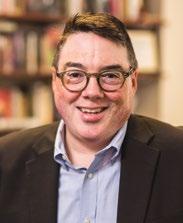
“Meditz is a firm believer in the power of the arts and sciences, so I could not be prouder of our new name and his support.”
This fall 2025 update marks a pivotal moment in the University’s history.
The renaming of the College of Arts and Sciences to the John Charles Meditz College of Arts and Sciences acknowledges a historic $50 million gift from alumnus John Charles Meditz ’70, representing the largest single donation by an individual in the University’s history.
Announced on March 17, 2025, the University’s 83rd anniversary, this renaming honors Meditz’s enduring support across various facets of Fairfield. Meditz is a firm believer in the power of the arts and sciences, so I could not be prouder of our new name and his support.
As Meditz himself said, “education should be multidimensional,” valuing exposure to the liberal arts for broadening horizons and critical analysis. His generous gift is intended to, in his words, “augment” rather than transform, and is specifically in support of scholarships, faculty recruitment and retention, and strengthening the Fairfield University Art Museum.
Within these pages, you will discover the impressive national and global reach of Fairfield Meditz’s faculty and students. From prestigious fellowships and research programs abroad, to experiential learning opportunities and career building internships at home, our talented faculty and students are helping solidify Fairfield’s reputation as a world-class Jesuit Catholic institution of higher education.
You will also witness the lasting impact of a Fairfield Meditz education on past generations, evidenced by the recent outpouring of philanthropic support from our alumni, parents, and friends of the University.
The “Year in Review” section further encapsulates a multitude of achievements, including Fulbright grants, student showcases at Cinefest, presentations at the American Chemical Society Conference, industry insights from a visit to Netflix, diverse New York City excursions, and Fairfield University Theatre Program productions.
This newsletter truly illustrates the dynamic and impactful environment within the John Charles Meditz College of Arts and Sciences, driven by dedicated faculty, exceptional students, and a remarkable Stag community of alumni, families, and friends.
Richard Greenwald, PhD Dean & Professor of History
Olivia Harriot, PhD
Associate Dean & Associate Professor of Biology
Jason Smith, PhD
Associate Dean & Assistant Professor of the Practice, Philosophy
Dawn DeBiase, MSW Assistant Dean, Graduate Programs
Colby Lemieux, MA’11 Senior Assistant Dean
Edlira Curis Director of Development
Sara Colabella ’08, MA’11 Associate Director of Integrated Marketing
Jeannine (Carolan) Graf ’87, MFA’25 University Editorial Director
Nancy (Gelston) Dobos ’91 Designer

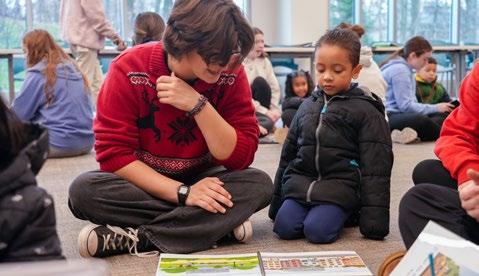

With Gratitude, R icha R d a G R eenwald, P h d
Dean and Professor of History, John Charles Meditz College of Arts and Sciences
Send Inquiries to: John Charles Meditz College of Arts and Sciences Fairfield University 1073 North Benson Road Fairfield, CT 06824-5195
203-254-4000, ext. 2227 fairfield.edu/meditz
Follow

Photo by Joe Adams
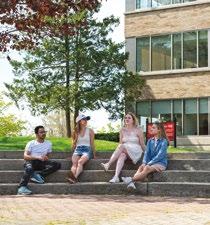
A New NAME
FAIRFIELD UNIVERSITY’S COLLEGE OF ARTS AND SCIENCES WAS RENAMED THE JOHN CHARLES MEDITZ COLLEGE OF ARTS AND SCIENCES IN RECOGNITION OF A HISTORIC GIFT FROM ALUMNUS
JOHN CHARLES MEDITZ ’70.

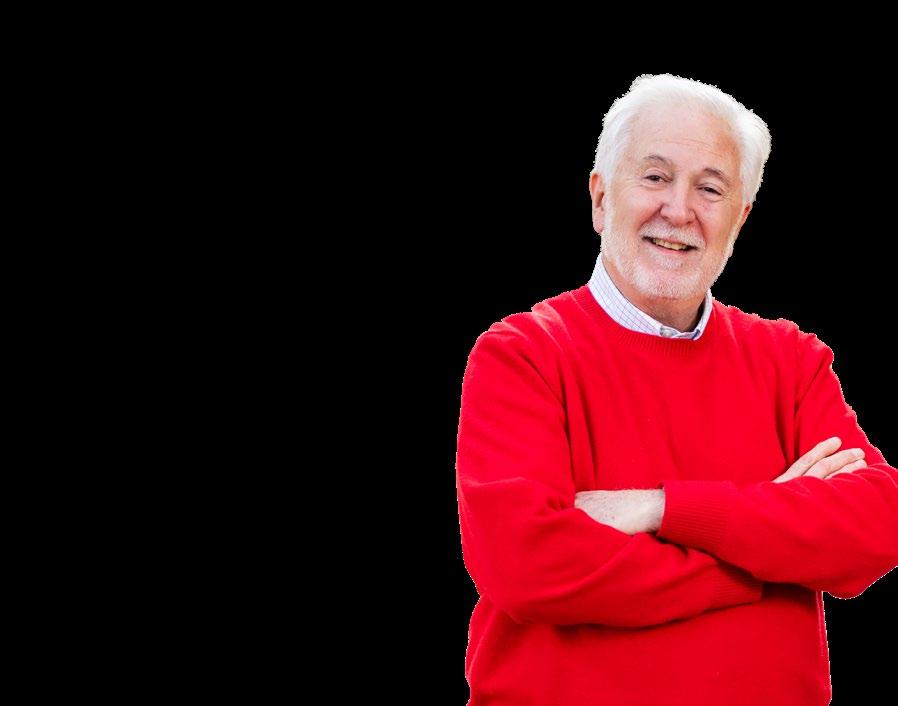
Fairfield University announced the renaming of the College of Arts and Sciences to the John Charles Meditz College of Arts and Sciences in recognition of a historic $50 million gift from alumnus John Charles Meditz ’70. It is the largest single donation by an individual in the University’s history.
President Mark R. Nemec, PhD, shared the news on March 17, 2025, the University’s 83rd anniversary. The renaming honors the legacy of Meditz, who has supported Fairfield across decades, from the arts and chapel spaces to scholarships and student life.
“It’s fitting that the hub of Fairfield’s liberal arts core curriculum should be named after John,” said Richard Greenwald, PhD, dean of Meditz College. “He speaks passionately about his appreciation for his broad-based Jesuit education—with the arts and sciences at its core—and about how this exposure makes one a better person, citizen, and role model for others.”
Meditz, who began his Jesuit education at Xavier High School in New York City, said, “Education should be multidimensional. Exposure to the liberal arts is certainly that.” He added, “The willingness to broaden one’s horizons away from the provincial experiences of youth and analyze them critically—that’s what education is.”
Meditz initially began as a finance major and later shifted to economics. “I really preferred the liberal arts to… let’s say, ‘more focused’ instruction,” he said. “That’s the benefit of a Jesuit education. There’s a core curriculum that’s intended to expose you to philosophy, theology, history, mathematics, and even the physical sciences.”
Fifty-five years after his time in Fairfield’s classrooms, Meditz still fondly recalls faculty who left a lasting impression, including Dr. Julia Johnston who was “probably as inspirational as you could come up with,” Carmen Donnarumma, whose classes were “mesmerizing,” and Rev.
Richard Costello, S.J., who offered “an absolutely spectacular way to approach one’s nation’s background.”
“The quality of education at Fairfield was second to none,” Meditz said. “I think it’s true today, and it certainly was true then.”
Preferring to describe his $50 million gift as “augmentative” rather than “transformational,” Meditz said the funding will support scholarships, faculty recruitment and retention, and strengthen the Fairfield University Art Museum.
“If one is successful, one should have a strong obligation to make good use of that money,” he said, “and a good use of that money very definitely relates to supporting education.”
A celebration to unveil new signage at the John Charles Meditz College of Arts and Sciences classroom building was held on September 5, 2025. l M
BELOW: First-year John Charles Meditz ’70 (facing camera) and classmates wore “freshman beanies,” customary in those days, while shopping for Fairfield gear at the University bookstore.
Photo
by Joe Adams
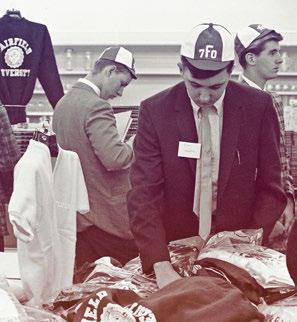
SUMMER AT
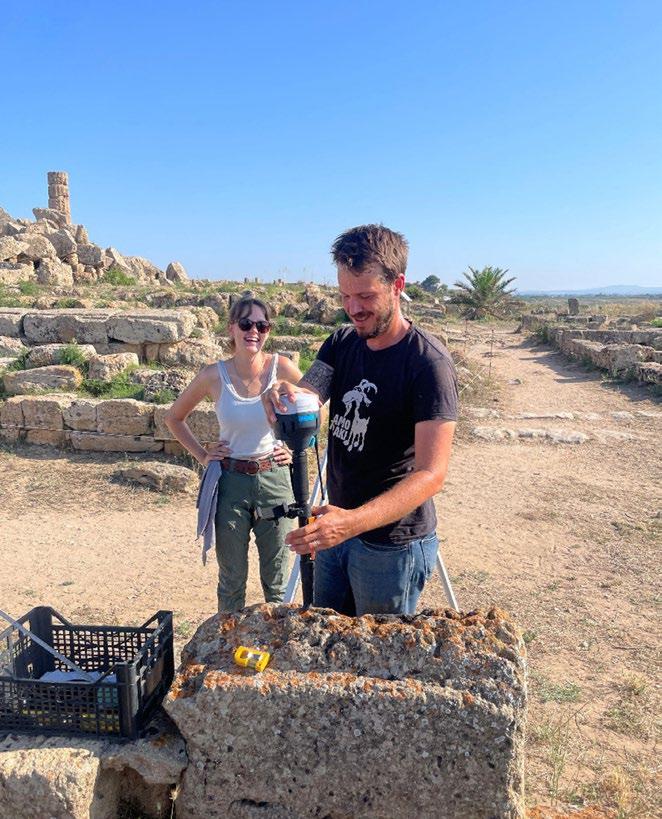
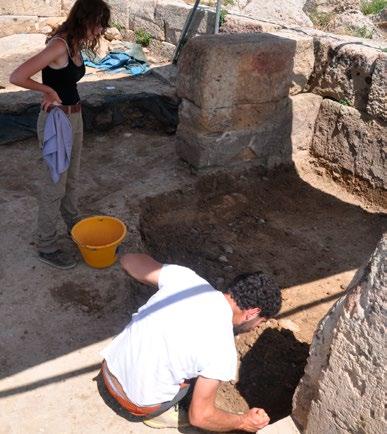
Before the summer heat blanketed the ruins of Selinunte—an ancient Greek archaeological site located on the southwest coast of Sicily, Italy, Andrew Ward, PhD, and Maya Jackman ’27, were already in the trenches.
With the sound of tools scraping against ancient stone, the assistant professor of art history and visual culture and the art history major and ancient Mediterranean studies minor worked layer by layer with their team, uncovering the stories buried beneath the surface.
“Our dig moves carefully and meticulously,” said the Fairfield Meditz faculty member. “Even ancient trash, sacred or otherwise, can tell us a great deal about how people lived and worshipped in antiquity.”
Since 2013, Dr. Ward has guided students annually at this archaeological site in a long-term exploration of the city’s sacred heart, a sanctuary home to at least five temples. Over the years, the project has catalogued thousands of offerings,

hundreds still in their original positions.
“Finds this year included dozens of iron weapons ritually ‘killed’ by bending and snapping, loom weights gifted to the goddesses from family looms, jewelry including a silver ring covered in gold, and a glass-glazed pot likely imported from far-away Egypt,” said Dr. Ward.
Each morning of the dig, Dr. Ward and Jackman made their way from the surrounding town of Marinella di Selinunte to the archaeological park. From 8 a.m. to noon, they rotated through a series of tasks in the trenches, digging, collecting soil buckets, and documenting their findings. The soil was sifted to ensure even the smallest artifacts like pottery shards, coins, and bones were recovered—each offering clues to the daily rhythms of the sanctuary and how it evolved through time.
“It’s really hard not to feel this sense of sacredness and importance within every object you find, whether it’s a fragment of a Greek vase or a piece of architecture,” said Jackman.
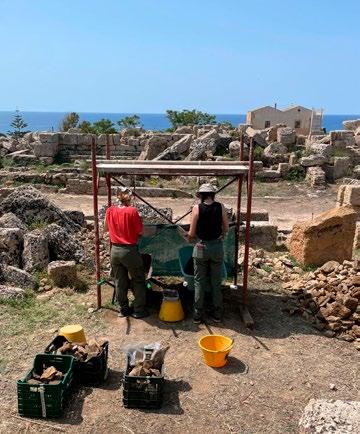
During the afternoons in the lab, the archaeological team cleaned and documented each morning’s finds under the supervision of conservators and specialists. “We are recovering the shared past of humanity one day at a time,” said Dr. Ward.
“Students resonate with the idea that these buildings were built by someone, were used by someone, and were destroyed by someone. Understanding that is always powerful.” l M
LEFT: Dr. Ward and Maya Jackman set up survey equipment.
ABOVE: (l-r) Maya Jackman and trench supervisor Andrea Bertaiola worked in Temple R; Student archaeologists Maya Jackman and Chiara Favalli from the University of Milan sifted excavated soils in search of pottery fragments, metals, and other material culture.
Photos by Andrew Ward and Maya Jackman
“It’s really hard not to feel this sense of sacredness and importance within every object you find, whether it’s a fragment of a Greek vase or a piece of architecture.”
Maya Jackman ’27
THE EFFECTS OF MICROPLASTICS

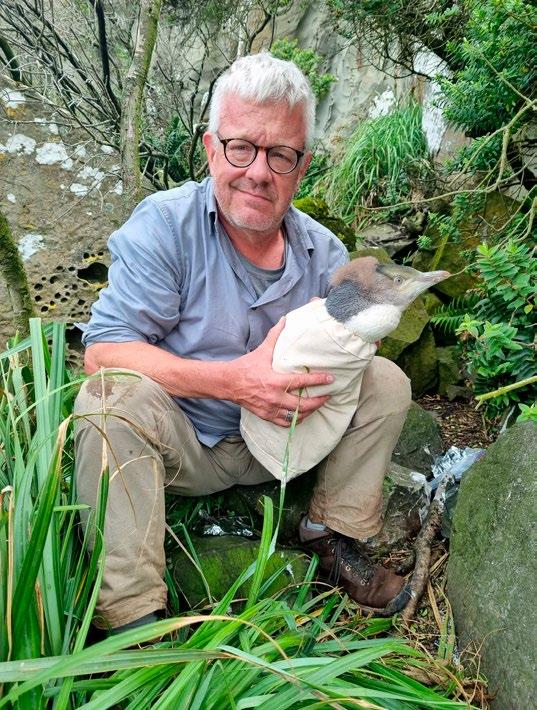
Although press coverage and debates about microplastics have been on the rise for years, scientific research on microplastics is still in its infancy. Through international collaboration, biology professor and Fulbright Global Scholar Brian Walker, PhD, is at the forefront of efforts to standardize the research protocols and methodology necessary to make microplastics research impactful in identifying and addressing health and environmental effects.
Dr. Walker recognized the critical need for standardized research practices, techniques, and protocols while conducting his own studies on the consequences of microplastics. After decades of researching how animals adapt physiologically to environmental changes, the John Charles Meditz College of Arts and Sciences professor began focusing on microplastic exposure in penguins—examining what passes through their systems and how it occurs.
“Given the level of variability we discovered when we were trying to standardize our techniques in the laboratory, it became obvious that it would be important for researchers in different labs to work together and do things in similar ways,” he said. “Then, when different labs start publishing their data, we can make stronger comparisons.”
To that end, Dr. Walker submitted a proposal to the Fulbright Global Scholars program. His acceptance allowed him to travel to three countries, each for two months. In Chile, he collaborated with scientists and a graduate student to collect and analyze samples from Peruvian diving petrels, which live and breed in similar environments to penguins. He then conducted research in New Zealand, collaborating with penguin biologists to study blue- and yellow-eyed penguins.
Dr. Walker completed his Fulbright journey in South Africa, where he worked alongside other penguin biologists and further developed best practices for conducting microplastics research.
To enrich student learning at Fairfield, Dr. Walker has brought samples from around the world back to his
Fairfield Meditz lab. There, he provides students with firsthand experience in the research process, from constructing hypotheses to analyzing samples and discussing findings, with the goal of publication.
Over six weeks this summer, the penguin biologist mentored two undergraduates as they analyzed samples collected from Magellanic penguins and other wild birds in Argentina and Chile. This essential research was enhanced by an $85,000 microscope, purchased with funds from the Seale Coastal Zone Observatory, a Virginia Tech initiative, as part of a grant to address marine pollution related to microplastics. “Without that microscope,” said Dr. Walker, “our process would be a lot slower and we wouldn’t have been able to do nearly as much as we have.”
Dr. Walker conducts his high-impact research with a goal to better understand the effects of microplastics on humans and to develop effective strategies for addressing them.
“Plastics have only been increasing,” he said. “The ability to start to show what those plastics might be causing in us will hopefully be used for conservation reasons and eventually decrease the use of plastics.” l M
LEFT: Dr. Walker’s research centers around microplastic exposure in penguins.
RIGHT FROM TOP: As part of the summer research program, Dr. Walker and two undergraduate students collected data in Argentina and Chile; Dr. Walker collected samples in the field.
Contributed Photos
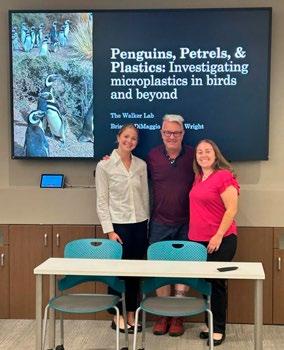


COMMUNITY-ENGAGED CAMPAIGNS
From Volkswagen to Ikea, Wen Zhao, PhD, served numerous clients in the public relations industry before pursuing a career in academia. Currently an associate professor of communication and the director of Fairfield Meditz’s Public Relations program, Dr. Zhao’s business experiences illuminated the importance of social responsibility and continue to inform the structure of her classes, which are a natural extension of the University’s mission to develop ethically grounded, socially responsible citizens.
To demonstrate the intersection of social responsibility, advertising, and communication,
Dr. Zhao integrates experiential learning into her public relations and capstone coursework through community-engaged learning. With support from Fairfield’s Center for Social Impact, she cultivates partnerships within the local community so that students can engage in simulated business-client relationships.
Students are connected with organizations that advocate for critical social issues such as sustainability or serving vulnerable populations. Building on classroom instruction, they meet with the client to understand the real-world problems they are addressing and their specific audiences. Guided by research, they work in teams to design public relations and digital communication campaigns that their clients can utilize.
“The process gives students a good perspective of this collaborative process with real-world clients,” said Dr. Zhao.
“Most importantly, I teach students how to conduct formative research, including both surveys and focus groups.
Students then understand the needs of their target audiences and help our clients solve problems.”
These experiences equip students with tangible representations of their ability to bring strategy, critical thinking, and
problem-solving to their future careers. The partnerships also demonstrate how skills developed at Fairfield can empower them to positively impact their broader communities. Dr. Zhao further demonstrates the value of communityengaged communication research through her own scholarship. Recently, she conducted research to inform an action plan for Age Friendly Fairfield, an initiative aimed at enhancing the quality of life for the town’s aging residents. l M
Over the past five years, Dr. Zhao and her students have developed communication campaigns for the following:
2021: Regina A. Quick Center for the Arts
2022: Fairfield Chamber of Commerce, Caroline House
2023: Town of Fairfield and Fairfield Senior Advocates
2024: Connecticut Audubon Society
2025: Mill River Wetland Committee, Elicit Brewing Company, Fairfield Museum and History Center, Fairfield University Art Museum

Genetics Global Scholar: Anita Fernandez, PhD
AFernandez, PhD, associate professor of biology, will spend four months fulfilling her dream of conducting research in Seville, Spain, at the
de Biología del Desarrollo (CABD) as a Fulbright Global Scholar. Working alongside other scientists at the renowned research institution, Dr. Fernandez is studying a rare, recently discovered genetic syndrome called Nestor-Guillermo Progeria.
Often, one of the most challenging aspects of the Fulbright Global Scholar application process is finding a suitable host. However, in Dr. Fernandez’s case, CABD was a seamless fit. She has known Dr. Peter Askjaer, the director and principal investigator at CABD, since 2006, when the two began studying the same gene. They frequently collaborated at the annual International C. elegans conference, also known as “the Worm Meeting.” When Dr. Askjaer initially spoke about opening a lab in Spain years ago, Dr. Fernandez replied in excitement, “Oh, you’re going to get a lab in Spain?’ I’ve always wanted to live in Spain.”
“We will have to make that happen someday,” replied Dr. Askjaer.
The researchers in the CABD lab in Seville are among the world’s experts in utilizing a model organism called Caenorhabditis elegans (C. elegans)—a nematode worm—to study nuclear envelope defects. For several years at her Fairfield lab, Dr. Fernandez has been studying genes that encode components of the nuclear envelope, further positioning the CABD lab as an ideal location for the Fairfield Meditz faculty member to expand her research.
Dr. Fernandez is especially passionate about deepening our understanding of Nestor-Guillermo Progeria, which causes premature aging in humans. The condition is caused by a defect in a specific gene called baf-1 which is found in both C. elegans and humans. “The researchers in Seville made a C. elegans mutant that carries the same mutation in the same gene,” she said. “This worm also shows premature aging defects.”
Given that they share many genes, the discoveries made while studying these worms can help researchers understand the disease in humans and potentially inform future therapeutic approaches. “People are suffering,” said Dr. Fernandez. “If we can help understand this disease, then we can potentially alleviate their suffering. This research can also help us understand aging in general, and we all experience aging.”
As excited as she is to collaborate internationally and learn innovative techniques at the cutting-edge lab in Seville, Dr. Fernandez is equally eager to bring those new skills and techniques back to Fairfield University to enhance students’ hands-on learning experiences.
Student mentorship is both a priority and a genuine passion for Dr. Fernandez. In preparation for her research trip, she worked with four Fairfield Meditz students on a four-week summer project to prepare them to continue conducting research in the Meditz lab during her time in Seville. She continues to mentor them through regular virtual meetings from CABD. l M
nita
Centro Andaluz
LEFT: Dr. Anita Fernandez (center, back) is a Fulbright Global Scholar studying the rare genetic syndrome called Nestor-Guillermo Progeria. Contributed Photo

FAIRFIELD TO 30 ROCK
Alarm clocks set to 5 a.m., train ride commutes to New York City, and the high intensity, thrilling hustle of a buzzing newsroom—all while balancing rigorous coursework. This was the day-to-day experience for three undergraduates who made their dreams of working for NBC News a reality.
Roisin McCarthy ’25, Jenna Codey ’25, and Julian Nazario ’26 embraced three different intern roles, carving unique paths at 30 Rock. McCarthy worked at the National Network desk, where she assigned stories to reporters, ensured they were prepared, assisted with press conferences, and identified her own stories to cover.
As an editorial intern, Codey’s role centered on the user experience and the ever-changing news cycle, which was heavily influenced by breaking news. She wrote headlines, pitched stories, and strategically selected content to feature on the website’s homepage and the mobile app’s front page.
She said her most memorable moments included working on election stories as well as the Grammys, the Golden Globes, and the Oscars.
Nazario worked as a digital intern. He curated coverage of congestion pricing, a health fair, and a toy fair convention for the website, and handled behind-the-scenes tasks that ranged from assisting with push notifications and utilizing search engine optimization (SEO) to managing the YouTube channel, social media, and preparing multimedia packages.
All three students valued having fellow Stags in the internship program. McCarthy said, “When we would go into
30 Rock, we’d always meet up and talk about what’s going on and what we were experiencing. I was fortunate to have others from Fairfield going through it with me.”
From the advice of professionals at Fairfield’s Career Center to skills learned in “Broadcast Communication,” “Newswriting,” and public relations courses, the interns felt well-prepared for their roles at NBC News. “I found there were so many overlaps. Every class that I took at Fairfield helped me in my internship,” said Codey.
Upon graduation, Codey secured a position as a public relations apprentice at Prosek Partners. McCarthy landed a role as a news producer for CBS in Portland, Maine. Both cited the combination of coursework, experiential learning, and internship opportunities with equipping them for their current full-time jobs.
Nazario is now a senior and plans to apply the SEO and multimedia skills gained during his internship to his work at The Fairfield Mirror student newspaper while he prepares for the job market. “Experience really matters and having interned at NBC will open other doors; I look forward to that,” he said. l M
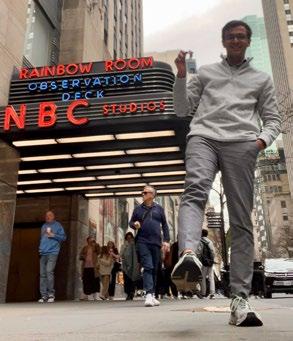
“Experience really matters and having interned at NBC will open other doors; I look forward to that.”
ABOVE: Now a senior at Fairfield, Julian Nazario is using the SEO skills he learned at NBC News in his role as editor for The Fairfield Mirror
Contributed Photos
LEFT: Fairfield classmates Roisin McCarthy and Jenna Codey commuted from Fairfield to 30 Rock for their internships at NBC News.
Julian Nazario ’26

TheJoy of Thinking
Fairfield Meditz professor of philosophy Sara Brill, PhD, has a renewed enthusiasm for thinking, thanks to a yearlong visiting fellowship at Clare Hall, a modern, internationally focused Cambridge college for graduate study and visiting academics at University of Cambridge in the U.K.
Dr. Brill is passionate about interdisciplinary connections between philosophy, science, and healthcare. In her research and teaching, she explores ancient Greek medical texts and draws modern parallels to organ tracking, environmental crises, and forensic ethics. In the classroom, she prompts students to engage in vibrant debates about the intersection of health and our sense of meaning in life.
Dr. Brill’s visiting fellowship will allow her to reflect deeply on conceptualizations of birth in visual and literary records from Greek antiquity—the subject of a book she is writing—while further exploring concepts of birth and natality. Engaging with scholars on an international scale,
she aims to develop a contemporary ethical framework of natality with connections to reproductive politics. Describing her excitement for the year at Clare Hall, Dr. Brill highlighted the significance of this opportunity to feel purely “replenished.” Not only will she benefit from new international networks, but also from the time to reflect, think critically, and be curious—habits she strives to instill in her students.
“The opportunity to focus on exploring ideas is such a profound joy and the deepest sustainer of what I do,” she said. “So often, students’ thinking is instrumentalized: ‘What is my grade?’ ‘What value is this going to bring me on the job market?’ It can be easy to overlook the profound joy of thinking. I am enormously grateful to get to prioritize that and be reminded of how amazing it is to get to sit around and think about ideas.”
Her U.K. fellowship will extend opportunities beyond Clare Hall, as Dr. Brill plans to participate in global conferences in Italy, Sweden, and Spain during the academic year. She recently became a member of the University of Oxford-based Philosophy of Birth Network—an academic initiative that brings together scholars, healthcare professionals, and researchers from across disciplines to explore how birth is understood and experienced from both conceptual and practical perspectives. Given Oxford’s proximity to Cambridge, she hopes to visit in person and further develop some shared projects.
Before landing in the U.K., Dr. Brill began her international journey in Italy this summer as this year’s director of the Collegium Phaenomenologicum. The threeweek international conference applied Greek tragedy as a lens to explore how evolving concepts such as genos, bios, and nekros have been re-energized and reimagined to contemplate what makes life livable. In addition to scholars from around the world, Dr. Brill was thrilled to have fellow Stags in attendance, including assistant professor of philosophy Jayla Stevenson, PhD, and former faculty member Kris Sealey, PhD. l M
AN INTERDISCIPLINARY PATH
Logan Morris ’25 initially became interested in law through his father’s experiences as a chiropractor who testified in court for personal injury-related cases. This observed connection between medicine and law sparked Morris’s curiosity about the intersection of different disciplines; at Fairfield, he has mapped his own distinctive interdisciplinary path.
As a marketing major in the Charles F. Dolan School of Business, Morris took an introductory philosophy course to fulfill a core requirement. He quickly recognized the applicability of moral and ethical questions and frameworks in informing business strategies for key functions such as message design, sales, and marketing campaigns.
Concurrently, Morris also noticed that every business class he took either began or ended with a discussion on ethics, further demonstrating the strong connections between the two disciplines. He became increasingly reflective about the way people think and why they think a certain way, and eventually declared philosophy as a second major.

With an underlying interest in law, Morris also began to observe the legal profession’s natural intersections with marketing and philosophy. He noted, for instance, how lawyers use tactics like storytelling to present cases and saw the need for them to do so in a way that resonates with diverse audiences and is ethically grounded. “I see a lot of parallels in how we convince people to see our perspectives on a case,” he said.
Morris is currently pursuing graduate studies in the Master of Business Administration program at Fairfield Dolan. Looking ahead, he plans to attend law school, likely specializing in personal injury law—an interest shaped in part by his father’s work and further solidified by his growing fascination with moral reasoning.
“I have a passion for the moral dimension of injury law,” he said. “You’re representing an average person who just had bad luck and was in a car accident and hurt their neck. You’re trying to make sure you can reclaim a bit of their life back.”
Morris expressed appreciation for Fairfield’s Jesuit values and for the University’s Magis Core Curriculum, which granted exposure to a variety of disciplines. He further explored the practical application of concepts and theoretical frameworks during his summer internship with a personal injury law firm, where he gained insight into the field and discovered the nuances of practicing that type of law. l M
LEFT: (l-r) Former Fairfield faculty member Dr. Kris Sealey, Dr. Sara Brill, and Dr. Jayla Stevenson at this year’s Collegium Phaenomenologicum.
Old John of Gaunt, time-honored Lancaster, Hast thou, according to thy oath and band, Brought hither Henry Hereford, thy bold son,
Here to make good the boist’rous late appeal, Which then our leisure would not let us hear, Against the Duke of Norfolk, Thomas Mowbray?
I have, my liege.
Tell me, moreover, hast thou sounded him
If he appeal the Duke on ancient malice Or worthily, as a good subject should, On some known ground of treachery in him?
As near as I could sift him on that argument, On some apparent danger seen in him
Aimed at your Highness, no inveterate malice. Then call them to our presence.
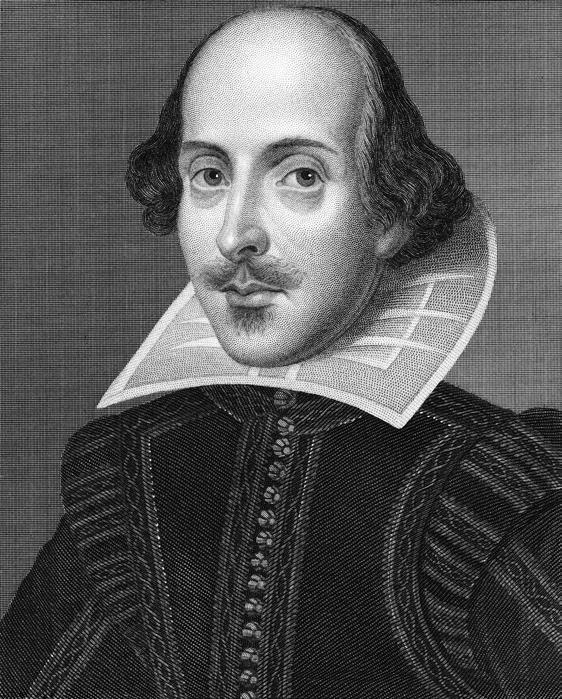
SHAKESPEARE SCHOLARSHIP LEGACY
Aclass paper turned into a learning experience beyond the classroom for Grace Danielewicz ’27, who participated in the first-ever undergraduate seminar at the Shakespeare Association of America conference in Boston, Mass., a premier gathering for Shakespearean scholars in the U.S Shannon Kelley, PhD, an associate professor of English in Fairfield Meditz, recognized Danielewicz’s passion and strong writing skills in her “Imagining Shakespeare” course and encouraged her student’s conference participation. “My classroom experience and scholarship are collaborative efforts with students,” she said. “It just feels natural to include them in conferences when have the occasion to do so.”
Danielewicz’s participation in this particular conference was especially meaningful for Dr. Kelley, who has attended the renowned annual conference for nearly 20 years. The Shakespeare Association of America event brings together professors, academics, scholars, performers, artists, and those interested in performance studies to connect and collaborate in approximately 20 different seminars.
With Dr. Kelley’s close mentorship, Danielewicz applied to attend and participated in a rigorous five-month process of reviewing and writing responses to the pre-circulated papers of her seminar cohort, which included students from institutions such as Boston University, Massachusetts Institute of Technology, and Cornell University. At the conference, the group engaged in open dialogue about their own work and that of their peers.
Marking her first conference participation, Danielewicz was grateful for the practical experience of engaging in discussions, presenting ideas, and networking with other scholars. “This was something I never really saw for myself,” she
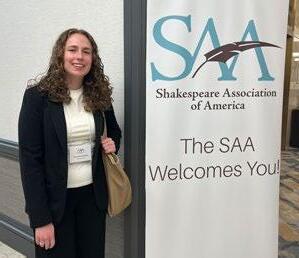
said. “I think it’s amazing that we can learn things in the classroom, but then also apply them to outside of the classroom. I had real-life experiences that are great for résumés and future career opportunities.”
With Dr. Kelley’s guidance, Danielewicz also applied for and secured conference travel funding through Fairfield University’s Lawrence Family Fund and the English Department. “Professors are truly grateful for such funding,” said Dr. Kelley. “The Office of the Provost plays a crucial role in helping our students succeed when traveling for conferences like this. These opportunities are also funded by donors who care about student success—those families are the legacy of the University and what it stands for.”
Dr. Kelley also attended the European Shakespeare Research Association’s annual conference at the Universidade do Porto in Portugal this summer, where

scholars from five continents gathered to discuss the role of time in Shakespeare’s plays and non-dramatic poems. There, she furthered Fairfield University’s ongoing presence in Shakespeare scholarship with a presentation of her work on gender and herbal texts in the famous garden scene from King Richard II l M
LEFT: Grace Danielewicz attended the inaugural undergraduate seminar at the Shakespeare Association of America conference this summer.
ABOVE: Later in the summer, Dr. Shannon Kelley also attended the European Shakespeare Research Association’s annual conference in Portugal.
Contributed photos
FAIRFIELD MEDITZ YEAR IN REVIEW


Alfred Babo, PhD, associate professor of sociology and anthropology, recently completed a Fulbright Specialist Grant at Jean Lorougnon Guédé University in the Ivory Coast, where he helped design an international studies curriculum focused on the rising impact of AI in higher education.

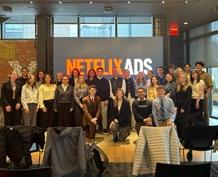
American Chemical Society Conference
Thirteen students traveled to San Diego to present faculty-mentored research projects at the American Chemical Society Spring 2025 Meeting & Expo.
Netflix
In March, 30 Stags in the City participants got an inside look at advertising at Netflix. Hosted by Doug Broadman ’05, senior director of ad sales, the students learned firsthand about the launch of Netflix with Ads.
Fairfield Meditz’s Film, Theatre, and Media Arts program students showcased their original short films at Cinefest, an annual juried film festival at the Regina A. Quick Center for the Arts. Fourteen films were selected, spanning genres from horror to experimental.

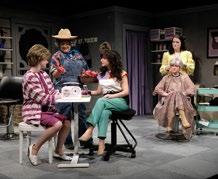
New York City Excursions
Students explored New York City through several faculty-led trips to The Metropolitan Museum of Art, the Jewish Museum, Joyce Theatre, and the Institute of Classical Architecture & Art, to deepen their study of classical antiquities, Jewish history, and the arts.
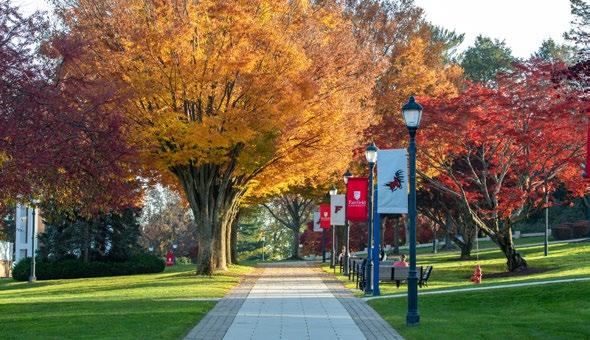
Promoting Scholarly Excellence Through Named Professorship Funds
Last spring, Fairfield became the fifth most selective Catholic university in the country and received its largest single gift ever from John Charles Meditz ’70, leading to the renaming of the John Charles Meditz College of Arts and Sciences. Since the renaming, alumni, parents, and friends have responded with renewed enthusiasm, eager to support the Meditz College’s growing national reputation for excellence in research and transformative student mentorship.
It is with profound gratitude to our philanthropic partners that Fairfield Meditz announces the creation of five named professorships that will no doubt continue our rise:
• The Ed O’Connell Professorship in Chemistry and Biochemistry: Elizabeth Stone
Fairfield University
Theatre Program
Fairfield’s student theatre program staged a dynamic lineup of productions, including Steel Magnolias, The Complete Works of William Shakespeare (Abridged) and the Pulitzer Prizewinning musical Next to Normal
• The Carmen Donnarumma Professorship in Politics: Lucrezia Garcia Immomi
• The Stuart McGuigan ’82 Professorship in Innovation: Mehmet Consoy
• The Robin ’96 and Joseph Kanarek Professorship in History: Gavriel Rosenfeld
• The Morris Family Professorship in Philosophy: Ryan Drake
On behalf of Meditz College, we offer our sincere thanks to our supporters. Your generosity plays a pivotal role in inspiring our faculty, shaping the academic and personal journeys of our students, and enhancing the University’s visibility and national reputation. Together, we are advancing excellence and opportunity for generations to come.
ADVISORY BOARD
We would like to extend our appreciation to the members of our Advisory Board for their unwavering commitment and generous support of the John Charles Meditz College of Arts and Sciences. Launched in 2005, this leadership board works closely with the dean to develop and champion the College’s strategic direction. Their contributions empower much of the meaningful work we undertake in the College and we are profoundly grateful for their vision, leadership, and partnership. We look forward to continuing this inspiring collaboration and shared success in the years ahead.
CHAIR
David Wakefield ’98
MEMBERS
Renee Appelle ’03
Kevin Cassidy ’90
Jorge A. Chiluisa ’89, MBA’06, P’21,’19
Ismael Colon ’72, PhD
Joellin Comerford ’74
Nancy Dallavalle, PhD
Robert Feigenson
Steve Flanagan ’84
Thomas A. Franko ’69
Scott Frederickson ’82
Paul V. Grecko ’86
Anne Harris, P’18
Kristine A. Holland ’88
Robin Kanarek ’96, RN, BSN
Patrick Kelley ’76, P’12
Timothy Lynes ’81
John Mancini ’86
Carol Chamberlain McCabe ’81
Patrick McCabe ’80
Erin Moran ’05
Matthew O’Connor ’92
Patty O’Connor ’89
Cindy Stack ’80
Edmund J. Sybertz ’72, PhD
Cheryl Wiesenfeld
Fulbright
Cinefest

1073 North Benson Road
Fairfield, Connecticut 06824-5195


